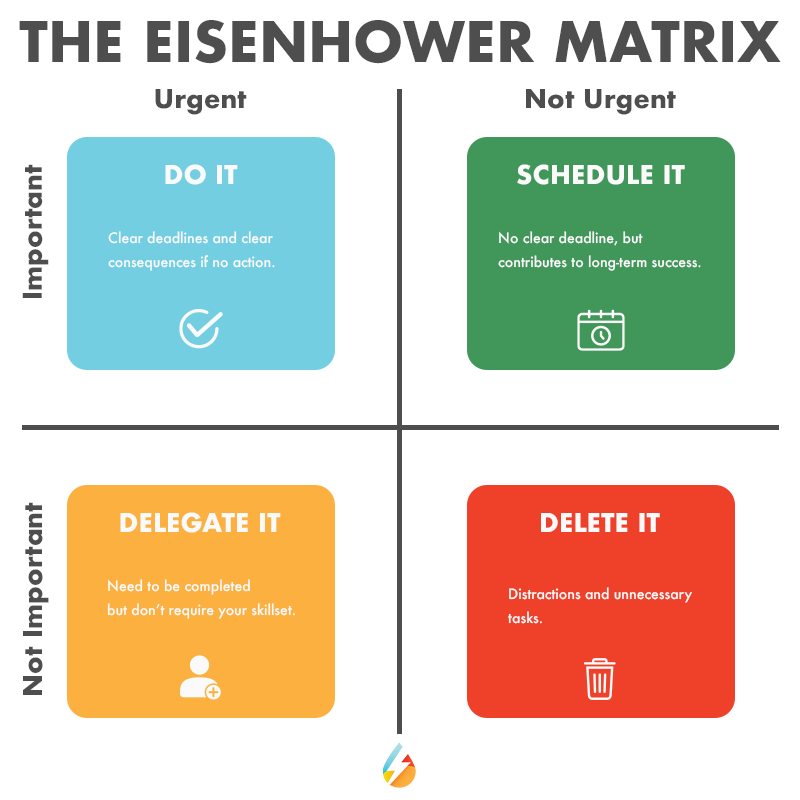Have you ever gotten lost among those pesky yellow post-its?
Do you remember taking notes during a meeting but have no idea where you placed those invaluable reminders?
Do you feel you can barely keep your head above water with various needs and expectations from committees, ministries, church members, and staff?
I've been there, too. Churches, regardless of size, tend to be pretty unorganized places to work. And it's easy for ministry leaders to feel isolated from others, even though you may work all week long in the same office suite. Many ministries don't know what's going on in other departments or how their ministries might engage with one another on similar events and programs.
The urgent and the important
In many churches, the urgent has overtaken the important. There are many reasons this occurs, but key among them is ministry leaders tend not to distinguish very well between what's urgent versus important. The urgent needs to happen right away, and this is where most ministry leaders—and church communicators—spend most of their time. It's challenging to think about six months from now (let alone next week) when you have to get this complex project completed today. And those "today" projects seem to keep coming, day after day, week after week.
If you feel like you're putting out fires every day, then it's time to prioritize your work (figuratively speaking, of course—if you're a firefighter, please keep putting out fires). To get beyond the urgent, we must distinguish between what's urgent, important, and neither of the two. Dwight Eisenhower (34th U.S. President) quoted Dr. J. Roscoe Miller, president of Northwestern University, when he said, "I have two kinds of problems, the urgent and the important. The urgent are not important, and the important are never urgent." Sound familiar?
President Eisenhower's speech led to what later became known as the Eisenhower Matrix. The Eisenhower Matrix helps the user decide what's urgent and important. The matrix divides tasks into four quadrants: what to do now, what to schedule, what to delegate, and what to delete. Take a look:

In the upper left quadrant of the matrix is the "Do It" category. These tasks are both urgent and important. This category should have clear deadlines and consequences if you fail to take immediate action.
Next to the "Do It" quadrant, you find the "Schedule It" column (upper right). These tasks are important but not urgent. "Schedule It" jobs don't have clear deadlines. Ultimately, these tasks are still important because they contribute to long-term success, so you should place the items on your calendar.
You'll find the "Delegate It" quadrant in the bottom left. This quadrant is for urgent tasks—they have a deadline and need to be completed—but they don't require your skillset. You may delegate the jobs in this quadrant to other ministry leaders (maybe the project "owner"), volunteers, or other staff. Tip: If you're trying to build a volunteer team (and I hope you are), the "Delegate It" section should indicate what kind of volunteers you need.
Last is the "Delete It" quadrant. These non-urgent, non-important tasks are distractions and unnecessary items. As you go through your task list and put them into the various quadrants, there are probably a handful of items leftover. Those leftover tasks aren't important, and they're not urgent. These jobs should get placed in your "Delete It" list. And as you think through what happens throughout your day, I'm sure you can think of some other distractions that should also land in your "Delete It" section (mindlessly scrolling Instagram, anyone?).
Hopefully, working through the Eisenhower Matrix helps you strategically think about how you can prioritize your workload. The matrix is a great start, but it's just a start. If you really want to get organized and take your communications to the next level, you need to see yourself as a project manager. And as a project manager, your best friend should be a quality project management system.
Every communications person is a project manager
Regardless of your title or status, you're a project manager if you're handling communication-related needs. It's your job to differentiate between the urgent and the important. And it's your responsibility to ensure everyone's projects are completed on time and with excellence.
That's why a project management system is critical for your church. Whether you're a church of 30 or 3,000, there are many moving parts. And proper strategies and tools can help you manage every project through completion. A project management system allows you, the project manager, to schedule tasks and projects, delegate related items, remove unnecessary noise, and deal with things that need immediate attention.
There are several reasons your church needs a structured project management system. Here are my top four reasons:
4 reasons to have a project management system
1. Structure creates space for flexibility
Using a project management system creates structure and processes that are key to helping you—the communications leader—and your church succeed.
I can hear the complaints: A project management system creates "too much" structure for ministry, or "we're a ministry, not a corporation."
My argument, though, is that structure creates space for flexibility. Without a framework, you're actually inhibiting your creativity and desired flexibility because you must always focus on the urgent. On the other hand, a properly-used project management system creates an automated structure helping your entire ministry thrive in a more creative space.
2. Improves communication along the team
One of the most frequent topics church leaders discuss with me is the lack of communication behind the scenes. Ministry silos are prevalent in the vast majority of churches. There's a void of healthy interdependence and communication between staff and teams.
Want to improve communication among your church's leadership? When everyone's using a properly-implemented project management system, everyone's involved. You may have tasks assigned to you or a request for feedback on a project. At the very least, you can check in and see how other projects are progressing and what else is happening around you.
3. Saves time and money
By introducing a project management tool for your church's communications, you can get beyond the urgent and decide what needs to be scheduled, delegated, or removed from your docket of tasks and projects. And when you're able to plan, you can save time and money—for yourself and your ministry. Printing or purchasing items ahead of time means you can save shipping costs and last-minute rushing fees, and you have the time to find the best price. Using a project management system saves you time because you can decide when to work on meaningful projects and organize your time in a way that works best for you. A PMS also saves time because tasks and feedback can be automated through different workflows. More people are natively involved in the process without adding cumbersome meetings, emails, or conversations.
4. Increases organization
Another reason your church needs to implement a project management system is that a good project management tool will help you increase your organization. As a church communicator, it's easy to get pulled in a dozen directions—before lunch. Staying on top of such a wide breadth of tasks, needs, deliverables, and expectations can be nearly impossible if you don't have systems and processes to help you stay organized. A project management system can be a lifesaver in this area! When used to its full potential, your project management system can be an all-in-one tool where everything regarding a project lives together, including files, feedback, and more.
If your church communication feels disorganized, rushed, or generally underperforming, a project management system can make a world of difference. While the benefits I listed are substantial, it's not an exclusive list. Where do you see a need for improvement in your communications? I bet a project management tool can help solve that problem.
